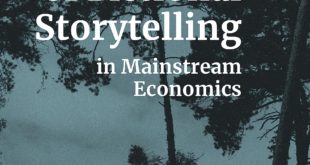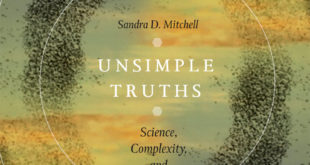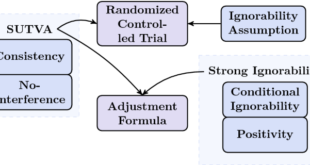Mainstream economics nowadays usually assumes that agents that have to make choices under conditions of uncertainty behave according to Bayesian rules, axiomatized by Ramsey (1931) and Savage (1954) — that is, they maximize expected utility for some subjective probability measure that is continually updated according to Bayes theorem. If not, they are supposed to be irrational, and ultimately — via some “Dutch book” or “money pump” argument — susceptible to being ruined by...
Read More »A philosopher’s look at science
A philosopher’s look at science You will already be familiar with the fact that broad swathes of social science research are given over to establishing, analysing, generalising, theorising about and using statistical associations that are manipulated with the assumptions of probability theory. This makes sense if probabilities can be attached to broad swathes of the phenomena that social science is meant to deal with. But can they? Here we face the same...
Read More »Why yours truly is a critical realist
Why yours truly is a critical realist What properties do societies possess that might make them possible objects of knowledge for us? My strategy in developing an answer to this question will be effectively based on a pincer movement. But in deploying the pincer I shall concentrate first on the ontological question of the properties that societies possess, before shifting to the epistemological question of how these properties make them possible objects of...
Read More »Bad faith economics
Itzhak Gilboa, Andrew Postlewaite, Larry Samuelson and David Schmeidler (2022) describe a practice that … is not uncommon among theorists: “[O]ne may suggest a model with a descriptive interpretation in mind, but, when facing an aggressive audience, one might take a step back and rather than promoting the model as an explanation of a real-life phenomenon, present it as a ‘proof of concept’ or ‘merely an exercise’ in testing the scope of the standard paradigm. (p. 7)“ Think...
Read More »Economic methodology — a critical realist perspective
Economic methodology — a critical realist perspective The field of economics has long been hailed as a bastion of rationality and objectivity, offering insights into the workings of present-day complex economic systems. However, questions about the foundations of economics and its prevailing methodological approach have to be raised. My own critique challenges traditional assumptions and argues for a more pluralistic and realistic understanding of economic...
Read More »Unsimple truths
When people hear the word “complexity,” they respond in different ways. Some think “complicated” or “messy,” not being able to see the forest for the trees. Others think of a clutter of matter going this way and that with no chance to get a purchase on its behavior, to take hold of the “blooming, buzzing confusion” (James 1890, 462). Others think “chaos,” in the traditional sense, something unrestrained and uncontrollable, a realm of unpredictability and uncertainty that...
Read More »Hegel
.[embedded content]
Read More »Against modularity
Isn’t it the mark of a successful theory of a range of phenomena that it unites and embraces the causally relevant parameters and state variables within a single theoretical perspective? This question suggests that if our theories are successful, then they should produce descriptions of systems according to which the systems are interactionally simple. I think that this would be to put the conceptual cart before the phenomenal horse. As the criterion (one of many) for the...
Read More »What is meant by ‘rigour’ in evidence-based educational policy?
What is meant by ‘rigour’ in evidence-based educational policy? The bad news is, first, that there is no reason in general to suppose that an ATE [Average Treatment Effect] observed in one population will hold in others. That is what the slogan widespread now in education and elsewhere registers: “Context matters”. The issue in this paper is not though about when we can expect a study result to hold elsewhere but rather when we can have EBPP-style...
Read More »Sander Greenland on cognitive biases in science
Sander Greenland on cognitive biases in science .[embedded content]
Read More » Heterodox
Heterodox






